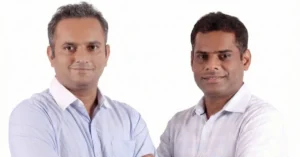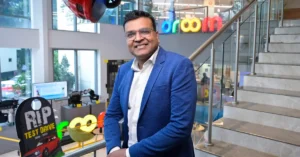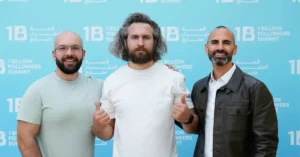“Quality is not an act, it is a habit.” – Aristotle
I was recently invited as a Keynote Speaker for the DTU E-Summit ’25 at Delhi Technological University (Formerly Delhi College of Engineering), India.
The Speaker session was well put together by the E-Cell DTU Team, and the team and the audience queried on varied topics such as, including but not limited to, journey from ideation to execution, the stages of startup growth, common pitfalls that startups face, team building, innovation and Artificial Intelligence (AI).
The recorded session is shared below, as also some of the ideas are shared right after.
Though questions were taken up on varied topics, we will address how we can try to build an innovative team and company culture in this post.
Building an innovative team culture
I. Starting at the Hiring Stage itself
If one were to look at the various building blocks of an innovative team culture, it would start with the hiring process itself.
It is preferable to try and get on board curious high-agency problem-solvers for your team and then try to create an environment conducive for them to perform, than to get on board team members without filtering for this first, and then trying to make them more innovative.
II. Building Cross-Functional Teams
Magic happens when knowledge and ideas collide to evolve into something bigger and better.
Some of the best companies in the world are companies where people don’t operate in silos, but where they work together. This becomes more crucial when it comes to building with the teams in direct contact with the customer, the market, the regulators, and the different stakeholders, so that there is a quick feedback loop which keeps getting iterated upon.
III. Culture of Merit over Hierarchy
Ensuring a culture of merit over hierarchy ensures good ideas have a chance not only to breathe, get visible, and gain traction, but also to win in the longer term. When people are treated fairly, trusted with responsibilities at the edges of their comfort zones, and they can focus on their discovered or yet-to-be-discovered strengths and capabilities, regardless of their current titles and hierarchy, good things can happen.
Another effect of this is that as the company and the culture scale, your current high-performance team will recommend and try to get on board more high-performance team players they trust and respect.
IV. Encouraging Risk Taking and Mistakes
To remain relevant as leaders in the business, companies needs to keep adapting to and innovating with the times, keeping an eye not just on the present but also on where the future is going. Towards that end, it’s a given that a company will have to take calculated risks with its teams, resources, and capital towards uncovering potential future value.
However, sometimes even despite the best of calculated and sincere efforts from the team, the attempted new initiative/ project/ offering/ product might not end up being a success in the market; and that’s perfectly fine too (as long as the risks are not big enough to kill the company should they not work out).
Taking the case of Amazon, which keeps the core focus areas in sight whilst continuing to experiment with an eye on the future, sometimes an initiative like the Fire Phone might not make it, but the same experimentation will lead to a success like the Amazon Web Services (AWS).
These are but just a few of the tools in the array of thoughtful choices to be made when building a company for the longer term:
Building, managing and sustaining a team of high-agency high-performers is easier said than done. Ensuring fairness and merit in the organization where people trust and respect each other is key.
About DTU
Delhi Technological University (DTU), formerly Delhi College of Engineering (DCE), is amongst the leading technology institutions in India.
ⓘ The above article was originally published by Monce C. Abraham on his official portal.






